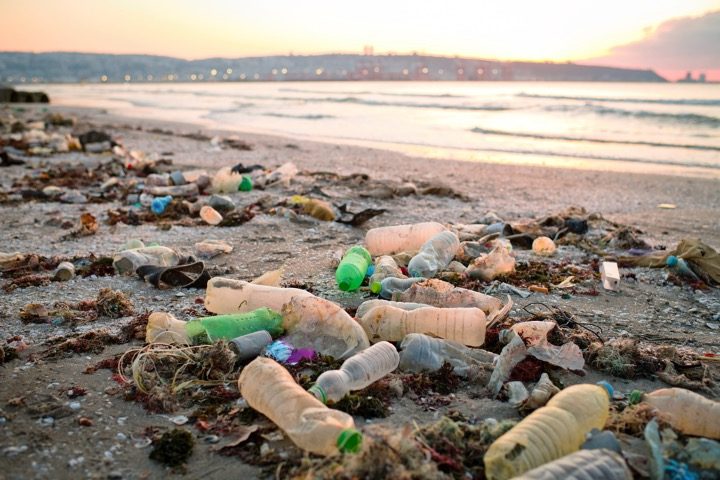
Perhaps it’s not surprising in an age where people and governments sue gun manufacturers because criminals misuse their well-designed products. But now there’s another example of selective targeting of a lawful industry based on political imperatives:
The Washington Post (WaPo), which has a history of peddling fake news and even had to pay a defamation settlement, is now calling companies that package their products in plastic “polluters.”
This is despite the fact that it is not the companies that sometimes incorrectly dispose of plastic containers, but end users, governments, and other entities.
Written by one Shannon Osaka, the WaPo piece’s title reads, “A global study just revealed the world’s biggest known plastic polluters.” From this you could suppose the paper might be talking about China, which is responsible for 28 percent of ocean-going plastic; or Indonesia’s Citarum River, the world’s most polluted. Instead, Osaka tells us that “companies produce more than 400 million metric tons of plastic,” some of which “spills” (as if it’s mainly accidental) into the environment.
For the record, I’m no great proponent of plastic food and drink containers. In fact, I wrote about the “Great Pacific Garbage Patch” 17 years ago already, well before the issue was as big as it is currently. I’m also old enough to remember when most products now in plastic were in glass, and for well-known reasons try to avoid consuming food/drink in plastic containers. Yet there’s another thing I’m no proponent of: injustice.
This brings us to Osaka. “A new study published Wednesday in the journal Science Advances has pinpointed some of the major brands responsible for plastic pollution across six continents,” she wrote late last week. “The researchers, who used a team of over 100,000 volunteers to catalogue over 1.8 million pieces of plastic waste, found that 56 companies were responsible for more than 50 percent of branded plastic waste globally.”
“The largest contributor was Coca-Cola, which accounted for 11 percent of the branded plastic pollution worldwide,” the writer continued.
PepsiCo, Nestlé, and Danone were also implicated.
The agenda here was clearly stated by Science Advances in its first line: “Brand names can be used to hold plastic companies accountable for their items found polluting the environment.”
Some commenting on Osaka’s piece at MSN recognized the injustice in this. “If a company makes a product and the people using the product cannot properly dispose of the product,” one respondent wrote, “it is not the company’s fault.”
For sure, we can “hold plastic companies accountable,” as the researchers write, but why should we? And if this principle is just, why limit it to plastic producers?
Consider that back when glass containers were the norm, it was more common to encounter shards of glass on beaches and in parks. So question: If a piece of glass gets embedded in your foot during a day on the shore, should that glass’ producer have to pay your medical bills? It’s the same principle: holding a company accountable for others’ misuse of its products.
Of course, this could be applied to anything. When there’s drunk driving, kids playing with matches burning down homes, or a brat hurling a hardball at your son’s head, just sue the alcohol, match, or baseball manufacturer.
In fact, Osaka tacitly admits that nothing unexpected is occurring with the implicated companies’ waste. “The researchers also found that there was a direct relationship between a company’s production of plastic and the amount of branded plastic waste found in the environment,” she informs. “If a company such as PepsiCo produced 1 percent of the world’s plastic mass, for example, that company was responsible for roughly 1 percent of the waste found in the audit. If a company produced 0.1 percent of the world’s plastic mass, it was responsible for 0.1 percent of the waste.”
Gee, thanks, Captain Obvious.
But then there’s what’s not proportionate. As another MSN commenter writes, “Why not identify the countries instead of doing a hit piece on corporations[?] The majority of pollution is created by Asia and Africa.”
Not only is China responsible for approximately 28 percent of ocean-polluting plastics despite having only about 18 percent of the global population, but most plastic waste comes from just five Asian nations.
Moreover, as the World Economic Forum itself admits, just “10 river systems carry between 88 and 99% of the plastic that ends up in the ocean from rivers.”
“Eight of them are in Asia: the Yangtze; Indus; Yellow; Hai He; Ganges; Pearl; Amur; Mekong; and two in Africa – the Nile and the Niger,” the WEF continues. In fact, 55 percent of this river-to-ocean plastic waste comes from the Yangtze alone.
In addition, studies indicate that 46 percent to 60 percent (by weight) of ocean-going plastic comprises discarded fishing gear (e.g., drift nets).
Conclusion: Creating onerous plastic regulations in the West — which is responsible for relatively little ocean-going plastic waste — will do little if anything to remedy the problem. What such focus does do, however, is give governments a pretext to further fleece people and companies and increase control over our lives.
All this said, there are good reasons to avoid packaging many foods and drinks in plastic, and biodegradable plastics may be a better option environmentally. But whatever course taken, it should not be enabled by lies.
Unfortunately, many today apparently disagree, as evidenced by how the knowledgeable comments-section respondents who refuted Osaka’s article received many down-votes. This underlines how too many Americans have become low-virtue, fact-despising relativists who believe that their ends justify even dishonest means.



